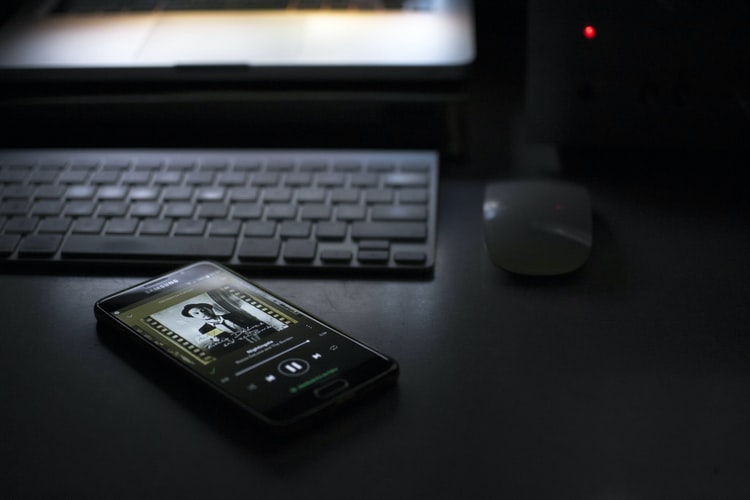The music industry fought against streaming exclusives, now Spotify and Apple Music are exploring them again
Music streaming exclusives are bad for the artists and fans. That’s what everyone decided a few years ago but now exclusives are cropping up again, but thankfully no albums are being bought up.
Exclusives have a rocky history in the new realms of the music streaming industry. Whilst video services like Netflix and Amazon Prime Video pride themselves on their exclusive output which provides them a unique selling point, when it started happening with music everyone hated it – even the major labels.
The music streaming exclusives war
Back in 2016, Apple Music’s recent launch fired the pistons of competition in the music streaming industry which was still finding its feet. With Spotify’s uncontested top spot suddenly at risk – alongside increasing presence from various other services – exclusive music releases seemed like the obvious route to setting services apart and coercing audiences to their platform over competitors.
It was a scheme that was helping TIDAL carve its own path with the backing of a number of huge artists allowing for exclusive releases from hit-makers like Kanye West and Beyoncé. As services started to explore the potential for exclusive releases they faced significant opposition, not only from listeners. Jay-Z himself – the founder of TIDAL – was pirated 1 million times in a week after releasing his album 4:44 only on TIDAL.
In August 2016, UMG (Universal Music Group) spoke out against streaming exclusives and banned them from any of their signed artists. After Frank Ocean initially released his album Blonde exclusively through Apple Music, UMG CEO Lucian Grainge sent out a company-wide letter banning exclusive releases – seeing more benefit for them and fans in the ubiquity of streaming services, rather than partitioning them.
In 2017, the Chinese government came out in opposition of music streaming exclusives warning local music streaming services and major international labels that they will not support the practice. They felt that music copyright “should follow the principle of fairness and reason… not to drive up prices, vicious bidding, to avoid exclusive purchase of copyright.”
Talking on exclusives whilst he was still involved with Apple Music, Jimmy Iovine said of their impact: “I don’t think we know yet, I don’t think anyone knows yet. A year from today could look extremely different from what it looks like right now.” Sure enough, a year later and the purchases of new releases for exclusivity had pretty much ended.
How are music streaming services making exclusives work in 2021?
After everyone silently agreed to end exclusive albums and singles, the streaming field was level once again. For the past few years, no matter what streaming service you use you can reasonably expect to find all the music you will elsewhere – the rare cases where one service has an artist/album that another doesn’t is usually down to licensing, distribution agreements, or artist/label’s personal choice.
This year we’re seeing more and more exclusive content coming from streaming services, but it’s not the next big Taylor Swift album that’s getting limited release. Platform’s are aware of the response to signing official releases exclusively so they’ve begun to explore unique exclusive content more and more – and it seems like the right way to approach it.
Spotify have begun experimenting with virtual concerts after teaming up with five artists earlier in the year for some exclusive shows. They’ve also been working with artists to record exclusive singles, which… is probably okay. If services are teaming up with artists to record an entirely new single then it makes sense for them to arrange an exclusive deal. It’s only when services are gatekeeping full, official releases by purchasing their rights that it really damages their support base.
Apple are also looking into how they can work with artists for their own content without purchasing rights to their official releases. ‘This Week in Apple Music‘ is a new spot on their platform for highlighting new and notable artists with interviews and short films that are available only on Apple Music.
Elsewhere Deezer have explored exclusives, recruiting a number of artists to cover some of the hottest tracks from the ’80s. Amazon have teamed up with a number of artists to offer exclusive merchandise from artist pages on Amazon Music, with clothes from Gwen Stefani, Metallica, Queen, and others.
Of course, in recent years we’ve seen music platforms look to the potential beyond music, particularly with the adoption of podcasts. Spotify particularly have gambled big time on podcasting, making exclusive deals with huge names like Joe Rogan, the Obamas, and Kim Kardashian.
It’s obvious that services need content to set them apart, otherwise the competition is just unfairly biased in favour of the most recognised brands (i.e. Spotify & Apple). It will be an interesting journey to see how services endeavour to set themselves apart more, whilst avoiding the mistakes of the past in full exclusive releases.
